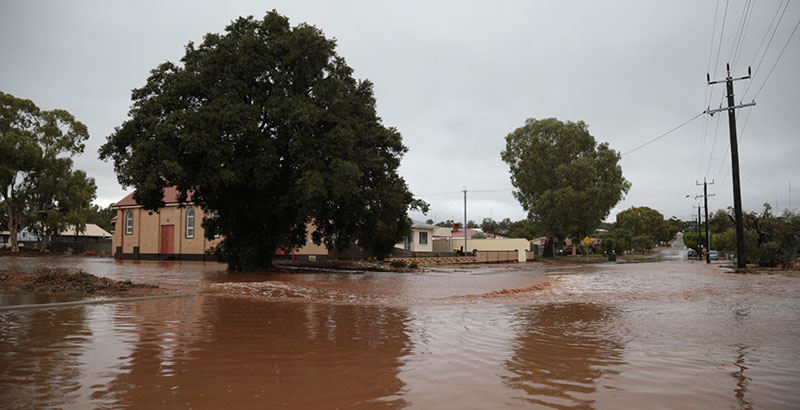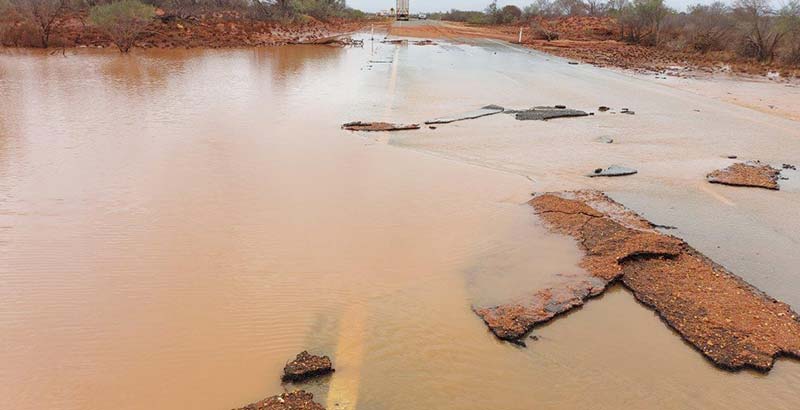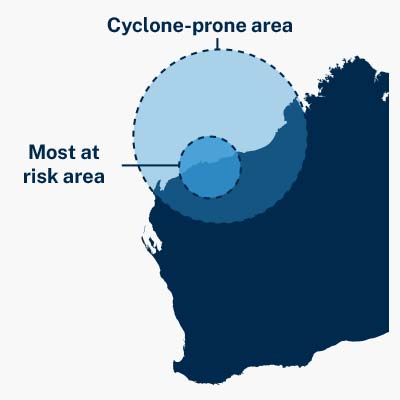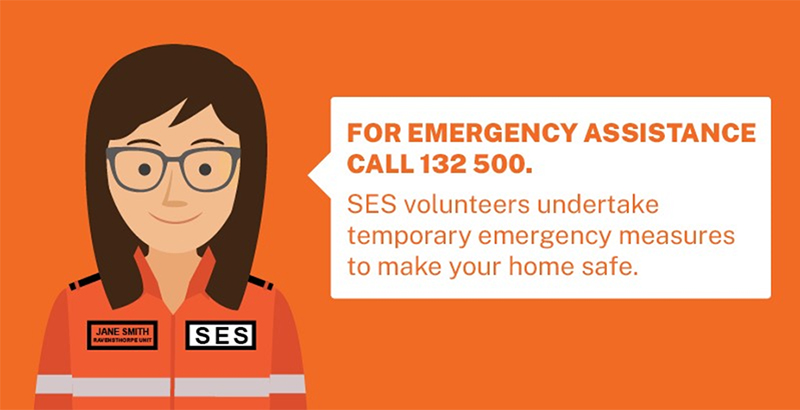Fire or life threatening emergencies: 000
Emergency Information: 13 3337
SES Emergency Assistance: 132 500
Floodwaters are very dangerous and can threaten your home and community.
While floodwater can sometimes take time to reach you, if flash flooding occurs then it happens very quickly and can take you by surprise.
You should expect floodwater to be deep, have strong currents and sharp objects that can injure or trap you. Floodwaters can also contain toxic waste, chemicals and dangerous animals.
Create your emergency plan on Emergency WA to stay prepared, no matter where you are.


If a flood is threatening your home or property you should relocate to a safer place, if it is safe to do so.
Leaving at the last minute is very dangerous because your planned route may be blocked by fast flowing water.
Know the risks of driving through floodwater
Driving on roads during or after a flood is extremely dangerous.
Roads and bridges can be severely damaged by the power of floodwaters. People have been seriously injured from debris, drowned after being trapped in their vehicle or washed away in fast flowing water.
If you think your car is strong enough to make it through the floodwater, think again.
Floodwaters can take control of a 4WD in just 30cm of flowing water. For smaller cars, it is only 15cm. That’s the size of an average pen! Find out more about your vehicles ‘float point’.
You can easily avoid these dangers.
If a road is closed, it means closed. Always obey road closures and check road conditions if there are no signs around.


Rising floodwaters can stall your car and disable electric windows or locks, potentially trapping you in your vehicle.
Animals that may pose a threat could be hidden under the water, including snakes and in some areas crocodiles.
A small 4WD can float in just 30cm of water, which is about the size of your steering wheel.
A seemingly calm surface can mask a fast-moving body of water below, powerful enough to float your vehicle.
Rubbish, rocks, tree branches, and many other sharp objects can hide under a smooth surface.
Floodwaters often contain sewage and bacteria! These harmful contaminants can cause serious illness or death.
Did you know? Nine out of 10 floodwater deaths on WA roads involves a local resident. No matter how well you know the roads, if a road is flooded forget it.
It is important to review your travel plans if the region you are travelling through has or is likely to experience flooding. Floodwaters can isolate communities for days, weeks or even months.
Access to service stations can be limited. In the event of a flood, queues will be long and fuel supplies may be interrupted. Keep your tank as full as possible during your trip and carry spare fuel.
You might not be able to see the dangers, but it doesn’t mean they aren’t there.
You must have an emergency kit when travelling in WA to keep yourself and others safe.
Ensure someone knows your travel plans, including when you will be travelling between destinations. Let them know when you have arrived safely.
When considering using a boat in floodwaters, be aware of the following:
If you choose to shelter in your home, it is very important that you first know the risks, understand what you may experience and follow these steps:
Even if you have planned well, life threatening situations can still happen. Your shelter could be damaged, or someone could become ill or injured. For life threatening emergencies call 000.
Emergency responders will try to come to your aid. However, there may be delays due to the dangerous conditions.

Once the flood risk has passed, an Advice or Watch and Act will be issued depending on the remaining hazards and risks. You must follow all of the safety advice in the warning.
Your property may be damaged and unsafe. If your property has been damaged and you need assistance, call the SES on 132 500.
Be aware that calls for assistance are prioritised to assist those most in need first so it might take several hours or even days before assistance may come.

Only return home when authorities tell you it’s safe. If you’re returning to your home, follow the routes recommended.
DFES will provide flood warning updates as the information changes.
Always have your battery-operated radio with you and listen for emergency broadcasts on local ABC Radio.
Call 13 DFES: 13 3337
Listen to ABC local radio
Main Roads WA or call 138 138